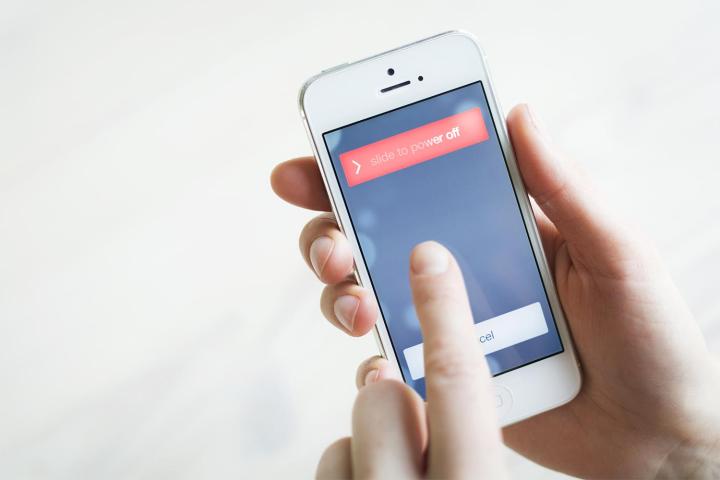
Do a quick thought experiment: Imagine telling someone you’ve decided to quit smoking. Now tell them you’re giving up drinking. Now tell them your cell phone plan is up and you’ve decided not to renew the thing.
The latter, at least, will be met with befuddled looks and, inevitably, “Why?” I know because I made that decision two weeks ago, and I’ve met my share of the same question.
The easiest way to explain it is this: I just wanted to see if I could do without. In spite of what I do for a living, I wasn’t an early adopter in the smartphone revolution. In fact, I found myself harboring a bit of contempt for those constantly on checking their BlackBerrys and later iPhones when Apple’s handset first began saturating New York City’s bars and subways.
I recently had the shakes in a theater an hour and a half into a two-hour long movie when I couldn’t check Twitter.
But I spent my first two years in this city without phone and got along just fine, thank you very much. I learned the ins and outs of a new place the old fashioned way: by getting lost and slowing forming an abstract map of how the streets and avenues and blocks and neighborhoods all fit together.
Ironically, it was a phone trade show that made me yearn to return to those days … by returning me to them involuntarily. Device and carrier issues at Mobile World Congress left me without my cellular fix in an unfamiliar Spanish city, but I survived just fine with broken Spanish and the help of friendly locals. So how difficult could it really be to live in my own city for a few weeks – or months, even – without the aid of a technology that would have seemed the realm of science fiction a decade and a half ago?
Turns out, kind of tough.
I recently had the shakes in a theater an hour and a half into a two-hour long movie when I couldn’t check Twitter. Though, in my defense, Nebraska drags quite a bit there in the middle. Extending that to two weeks has only enhanced the symptoms of loss. In many ways, the loss of my phone has mirrored the famous “five stages of grief” laid out by the Kübler-Ross model in 1969’s On Death and Dying.
Depression: At the gym, I think of really great Twitter joke watching CNN on the treadmill, and another walking between the free weights and the locker room. I am instantly proud of myself and fumble toward my pockets, only to realize they are empty and by the time I get home home, the quip will have evaporated into the ether. I am instantly terrified to imagine how such lifestyle changes will batter my Klout score.

Overcompensation: I’m really early to things these days. Really, really early. Mind you, I’ve always been a reasonably punctual person, but these past two weeks have been ridiculous, as my concerns about losing my way in a city I know like the back of my hand have consistently resulted in my showing up at least a half an hour early to all things. Worse than that, when I arrive, I’ve got nothing to check Facebook on. Pro tip: Act like you might buy something, and the Apple Geniuses will let you stay as long as you want.
Transference: OK, full disclosure, I’m currently testing out a fitness watch. Sitting in my neighborhood bar, I stare at the thing for hours, comforted by the presence of the tiny display. As Stephen Stills once sang, “If you can’t be with the screen you love, honey, love the screen you’re with.” I now know how many calories one burns drinking bourbon. The answer will depress you.
Acceptance: Last week, I really concentrated on the sky for the first time in a long time. It was big and clear and surprisingly full of stars for a light-polluted city like New York. At once, I fumbled for my phone – I’ve got a great astronomy app that tells you exactly what you’re looking at. Or, rather, had. I took a few more beats and really examined the thing. It’s a much different experience when there’s no phone standing between you and the North Star. Given time, it’s the sort of thing I could get used to. There’s probably a clever tweet in there somewhere.
I keep coming back to the same question. Mankind evolved for millions of years without the aid of Yelp and Google Maps. How is it that living without them for a day is suddenly a task of Herculean proportions? Were we so different then? After two weeks, I can say, conclusively yes. We were. We were super genius magicians capable of amazing and powerful deeds. But now we have access to all of the world’s information and 100 variations of Flappy Bird in our pocket at all times, so I think we’ve come out about even.
Editors' Recommendations
- Best phone deals: Save on the iPhone, Galaxy Z Fold 5, and more
- iOS 18 could make my iPhone look like Android, and I hate it
- The best iPhone keyboard apps in 2024: our 12 favorites
- My iPhone’s keyboard is driving me crazy
- Nomad sale: Up to 85% off cases for iPhone, AirPods, Apple Watch


